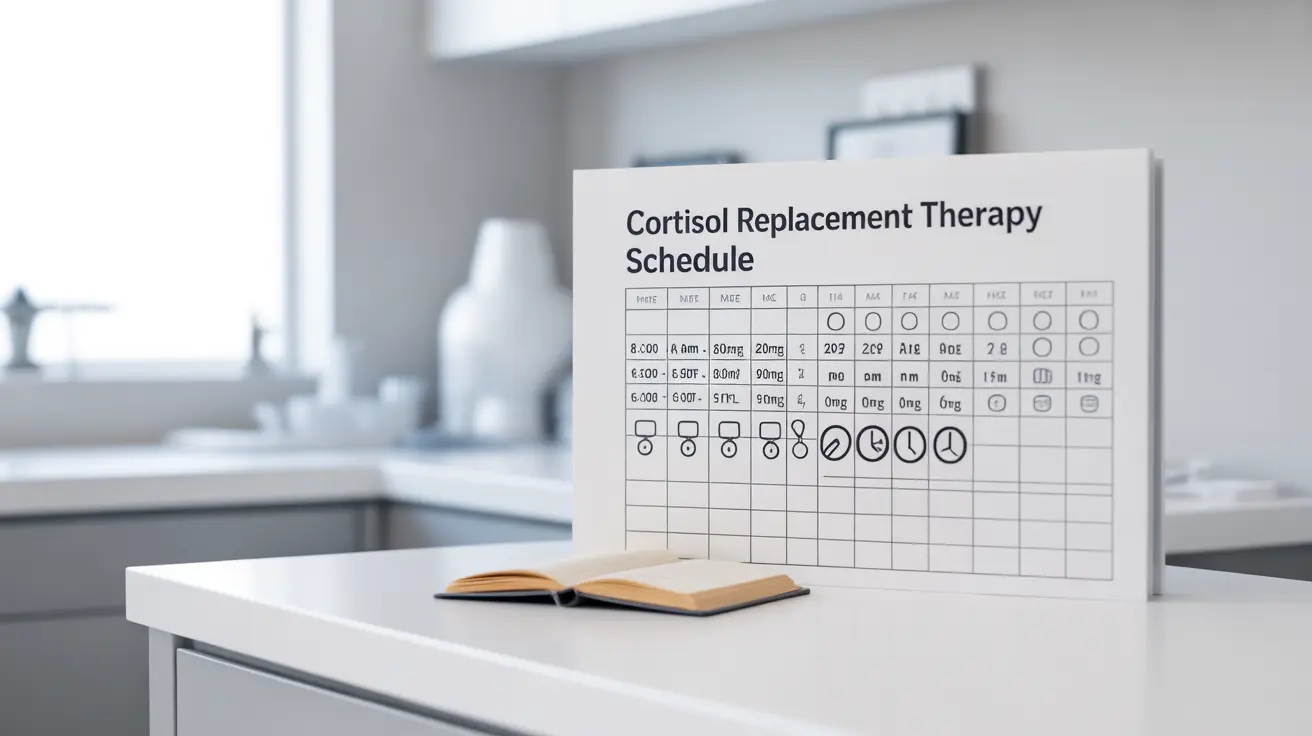Living with Addison's disease requires a careful understanding of cortisol replacement therapy and its vital role in managing this condition. While some may be curious about cortisol detox methods, it's crucial to separate fact from fiction when it comes to treating this serious endocrine disorder.
In this comprehensive guide, we'll explore the essential aspects of cortisol therapy, address common misconceptions about cortisol detox, and provide vital information for those managing Addison's disease.
The Role of Cortisol Replacement Therapy
Cortisol replacement therapy is the cornerstone of Addison's disease treatment. This therapy involves taking synthetic cortisol (hydrocortisone) or other glucocorticoids to replace the hormones that your adrenal glands can no longer produce. Without this vital treatment, individuals with Addison's disease cannot maintain normal bodily functions.
The medication schedule typically mimics the body's natural cortisol rhythm, with larger doses in the morning and smaller doses throughout the day. This careful dosing helps maintain proper hormone levels and prevents dangerous complications.
Debunking Cortisol Detox Myths
Despite claims circulating online about cortisol detox methods for treating Addison's disease, it's important to understand that these approaches are not only ineffective but potentially dangerous. People with Addison's disease cannot "cleanse" or "reset" their adrenal glands through natural detox methods.
The concept of cortisol detox is particularly risky for those with Addison's disease because:
- Their bodies already produce insufficient cortisol
- Attempting to reduce cortisol levels could trigger a life-threatening adrenal crisis
- Natural remedies cannot restore adrenal gland function
Recognizing Low Cortisol Symptoms
Understanding the symptoms of low cortisol is crucial for proper disease management. Common indicators include:
- Severe fatigue and weakness
- Low blood pressure
- Salt cravings
- Gastrointestinal problems
- Darkening of the skin
- Muscle and joint pain
- Unexplained weight loss
Managing Medication During Stress and Illness
During periods of physical or emotional stress, people with Addison's disease need to adjust their medication dosage. This is known as "stress dosing" and is essential for preventing adrenal crisis. Common situations requiring dose adjustments include:
- Fever or infection
- Surgery
- Severe injury
- Intense emotional stress
- Strenuous physical activity
Emergency Preparedness and Safety Measures
Carrying emergency supplies and wearing medical identification are non-negotiable aspects of Addison's disease management. This includes:
- Emergency injection kit containing hydrocortisone
- Medical alert bracelet or necklace
- Written emergency instructions
- Contact information for healthcare providers
Frequently Asked Questions
What is cortisol replacement therapy and why is it essential for managing Addison's disease?
Cortisol replacement therapy provides synthetic hormones to replace what the adrenal glands can't produce. It's essential because without it, people with Addison's disease cannot maintain vital bodily functions and are at risk of life-threatening complications.
Can Addison's disease be treated with a cortisol detox or natural detox methods?
No, Addison's disease cannot be treated with cortisol detox or natural detox methods. These approaches are dangerous and ineffective because the condition requires lifelong hormone replacement therapy to maintain health.
What are the common symptoms of Addison's disease caused by low cortisol levels?
Common symptoms include severe fatigue, weakness, low blood pressure, salt cravings, gastrointestinal issues, skin darkening, muscle pain, and unexplained weight loss.
How should someone with Addison's disease adjust their cortisol medication during illness or stress?
During illness or stress, patients typically need to increase their cortisol medication doses following their healthcare provider's specific instructions. This "stress dosing" helps prevent adrenal crisis.
Why is it important to carry emergency cortisol injections and a medical alert ID if you have Addison's disease?
Emergency cortisol injections and medical alert IDs are crucial because they can be life-saving during an adrenal crisis. The medical ID helps first responders provide appropriate emergency care, while the injection kit provides immediate treatment when needed.




